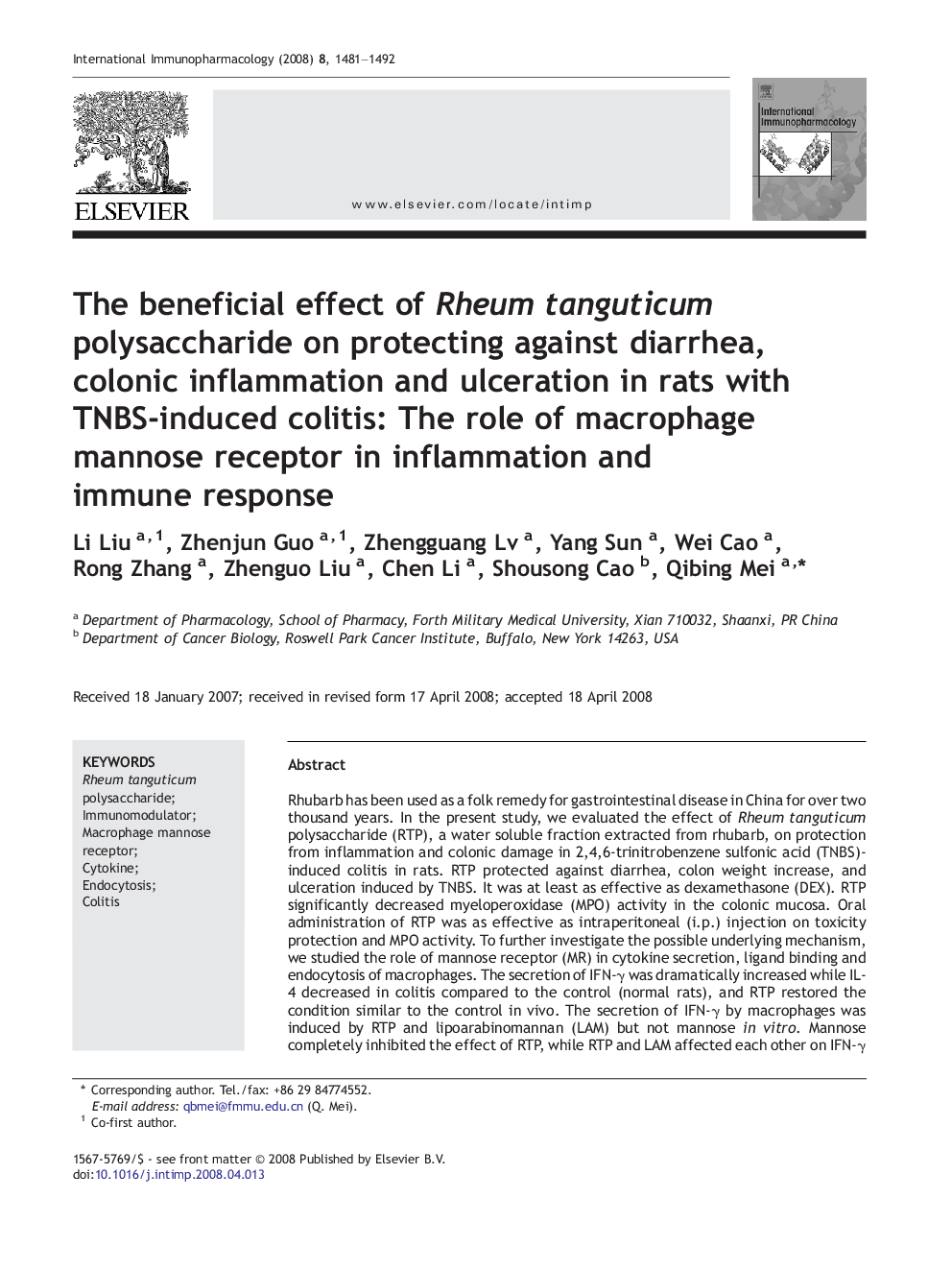| Article ID | Journal | Published Year | Pages | File Type |
|---|---|---|---|---|
| 2541431 | International Immunopharmacology | 2008 | 12 Pages |
Rhubarb has been used as a folk remedy for gastrointestinal disease in China for over two thousand years. In the present study, we evaluated the effect of Rheum tanguticum polysaccharide (RTP), a water soluble fraction extracted from rhubarb, on protection from inflammation and colonic damage in 2,4,6-trinitrobenzene sulfonic acid (TNBS)-induced colitis in rats. RTP protected against diarrhea, colon weight increase, and ulceration induced by TNBS. It was at least as effective as dexamethasone (DEX). RTP significantly decreased myeloperoxidase (MPO) activity in the colonic mucosa. Oral administration of RTP was as effective as intraperitoneal (i.p.) injection on toxicity protection and MPO activity. To further investigate the possible underlying mechanism, we studied the role of mannose receptor (MR) in cytokine secretion, ligand binding and endocytosis of macrophages. The secretion of IFN-γ was dramatically increased while IL-4 decreased in colitis compared to the control (normal rats), and RTP restored the condition similar to the control in vivo. The secretion of IFN-γ by macrophages was induced by RTP and lipoarabinomannan (LAM) but not mannose in vitro. Mannose completely inhibited the effect of RTP, while RTP and LAM affected each other on IFN-γ secretion. The MR-mediated ligand binding and endocytosis of macrophages were markedly decreased in colitis and RTP restored their function to near normal condition. The results indicated that RTP targeted MR and down-regulation of Th1-polarized immune response may be the possible mechanism for its attenuation of intestinal inflammation and damage. RTP may be useful for treatment of patients with inflammatory bowel disease.
